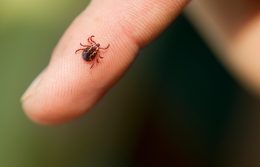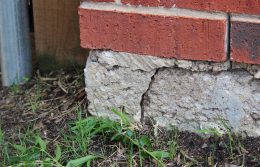A Newcomer’s Texas Slang Dictionary
Whether you were born here or you got here as fast as you could, you probably take pride in the fact (or you quickly learn) that Texas has its own language.
Even for Stetson-wearing, two-stepping Texans fluent in the finer nuances of Lone Star speak, it’s worth brushing up on the linguistic particularities and peculiarities of the Texas dialect. So even if this ain’t your first rodeo, hang on and brush up on some of the finer points of Texas slang.
Ain’t my first rodeo
You’ve been around the block. You’ve seen it before. You’re a veteran. Experienced. Know your stuff. Won’t be fooled. Have a handle on the situation. Whatever way you wish to convey that you’ve been there, done that, in Texas it’s all summed up in the phrase, “ain’t my first rodeo.”
All hat, no cattle
Kind of like, you talk the talk but you can’t walk the walk.
All y’all
“Y’all,” of course, means you all. But you all could mean you all over here. “All y’all” means everyone’s included; not just y’all over there, but all y’all. The phrase epitomizes the efficiency of Texan.

Bexar
Perhaps the easiest way to test someone’s Texas credentials is to ask them to name the county that’s home to San Antonio. If what they say doesn’t sound like the word “bear,” then you know they ain’t from around these parts.

Boerne
Here’s another tough one. It’s not Boerne like you’re born there. It’s Boerne like the name Bernie.

Bowie
These B towns are tough. It’s not named after David Bowie. It’s named after Jim Bowie, who died at the Alamo. And his name is pronounced like the word buoy. Why? That’s just the way it is.

Buda
Told you. It’s not like the Buddha. It’s more like the first part of “beautiful.”
Broke bad
A certain hit AMC television show has recently popularized the phrase “breaking bad.” But in Texas, we have long used “broke bad” to describe someone who came from a good family but didn’t turn out right. The phrase originates from the training of animals, such as a broke horse that turned out wild or bad.
Coke
It’s not soda. It’s not pop. It’s Coke. But Coke doesn’t just mean Coke. It could be a Sprite or a Dr Pepper or a 7 Up. All soft drinks are Cokes. So if you’re ordering a soft drink at the Dairy Queen and you ask for a Coke, don’t be surprised if the clerk asks, “What kind?”
Corn-fed
Sure, that large steer-riding hunk in the cowboy hat and Wranglers may be “beefy,” but in Texas, we call our fit neighbors “corn-fed.”
Fixin’ to
To the non-native, listening to a Texan speak can sometimes be confusing. For example, why are Texans always repairing things? Of course, they don’t know that “fixin’ to” means “getting ready to” or “preparing to,” as in, “I’m fixin’ to send you back to school so you can speak Texan right.”

Gruene
Gruene, Texas, is home to the incomparable Gruene Hall. Yet most people still say its name wrong. Unfortunately, the dance hall is not named Gruene rhyming with tunes that are played there. It’s Gruene as in the green grass outside.
Howdy
Perhaps the best-known Texas slang is the word for hello. More accurately, it’s a shortened version of “How do you do?” But it’s not a question and it’s not reserved for cowboys. When you greet someone in Texas, a simple “howdy” is all you need.
Icebox
Just as the term “ice house” harkens back to a certain kind of store or waterhole, dating back to a simpler time when ice distributors sold all sorts of necessary household items, the ice box is the place where you store your perishables. That is, the fridge.
Uh huh
While most of the country may hear “uh-huh” as a half-hearted expression of agreement, in Texas, “uh-huh” can also mean “you’re welcome.” So, if you’re out in the Hill Country and you thank the pitmaster at your favorite barbecue joint for lunch, and all he says is a simple “uh-huh,” don’t take it as a brush-off. The response is a perfectly polite “you’re welcome.”

Libel’ta
Libel’ta falls in the tradition of efficiency in Texas slang. It means “liable to” or “likely to.” For example, a Texan is libel’ta drop unnecessary syllables from their words.

Refugio
Pronounced Refugio with “fury” in the middle. Not “fuge” rhyming with “huge” or “fug” rhyming with “hug.”
Skeeters
The skeeters get bad in parts of Texas, especially in the swampier, more humid southeast. Skeeters meaning mosquitos, naturally. Because who needs all those syllables?
Tea
It’s not hot and it’s not bitter. In Texas, ordering a tea will get you a frosty iced beverage sweeter than honey from a bee.
Toad choker
In other parts of the country it rains cats and dogs, but in Texas, a heavy downpour is a “toad choker.” Makes sense in a state where rivers flood frequently and with little warning. So, next time it’s a toad choker — or, alternatively, a “frog strangler” — you know to be careful out there.
© 2019 Texas Farm Bureau Insurance



